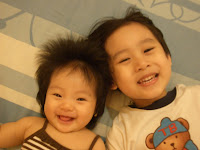Playgroup is an informal and consistent (1 1/2 hours) play session for parents, caregivers and children to meet once a week. It is different from child care, kindergarten and pre-school, because adults are attending with their children (from age 0 to age 4). No child is too young for playgroup, including babies.
.
All children love to play, and they learn the best during their play time.
All children love to move, and they move to learn.
All children love to be loved, and they count love as TIME.
.
Activities and benefits of playgroup
music & movement: appreciate and love music, establish steady beat, enjoy travelling and stationery movement.
story book time: encourage imagination, focusing and listening skills.
- play dough: explore texture, create shapes, strengthen muscles, fine motor skills and creativity
drawing & painting: develop creativity, imagination and coordination, communicate ideas
cutting & pasting: create ideas, shapes
calendar chart: recognise days, weeks, months and weather
cooking: inspire with the art of cooking
puzzles: encourage coordination, shape and picture recognition.
apparatus: discover colours, sorting shapes, size, texture, weight, measurement.
(Montessori apparatus: dressing frames, long rods, number rods, broad stairs, natural tower, nature puzzles, sound box, smell box, weight box, touch box, threading, etc.)
.






Children will have an opportunity to:
- have fun
- make new friends
- interact with other adults and children
- participate in new experiences
- learn in sharing
- build self-confidence
- gain independence
- develop verbal and non verbal communication skills through contact with other children and adults
- develop fine and gross motor skills, better body control, hand to eye coordination, when they play with balls, sand bags, puzzles
Parents or caregivers will have an opportunity to:
- spend quality time with their children
- establish parent-child bonding
- encourage, help or simply play with their children
- meet other parents or caregivers and develop new friendships
- relax and talk in a friendly, healthy and nurturing environment
- share ideas, experiences, problems and learn from other parents while their children are playing
.jpg)
.jpg)












